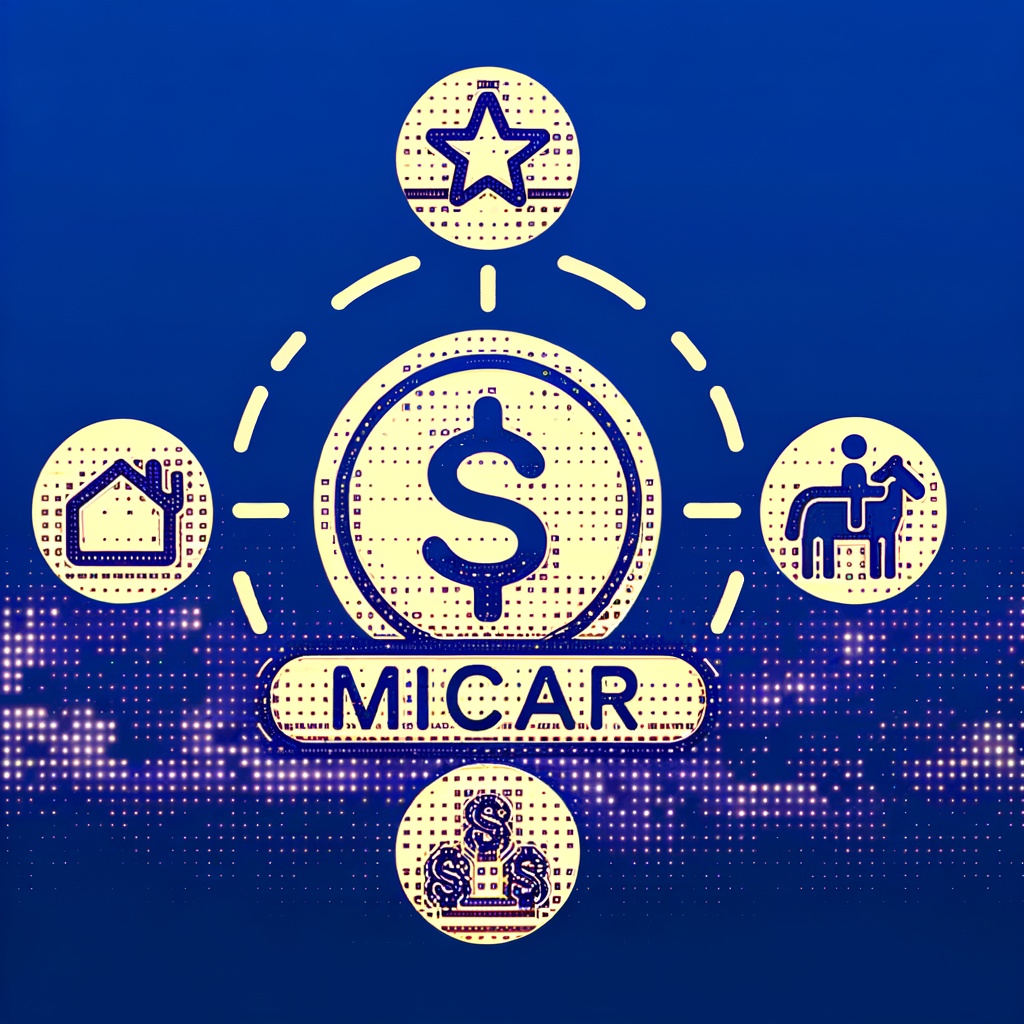-
 Expansion to Europe – How Can Crypto Asset Service Providers from Third Countries Come to Europe Under MiCAR?
Expansion to Europe – How Can Crypto Asset Service Providers from Third Countries Come to Europe Under MiCAR?
Numerous crypto asset service providers from the USA, Asia, Switzerland and the UK are interested in expanding into the EU in order to benefit from the regulatory opportunities offered by MiCAR. What options do they have to approach the move to Europe from a regulatory perspective?
-
 Public Warnings by BaFin – How Affected Companies Can React
Public Warnings by BaFin – How Affected Companies Can React
If BaFin publishes public warnings about companies, this can have a negative impact on the companies. How can affected companies defend themselves in such cases?
-
 The BaFin License According to MiCAR – Which Application Variants Are Available for Crypto Asset Service Providers?
The BaFin License According to MiCAR – Which Application Variants Are Available for Crypto Asset Service Providers?
MiCAR will set different requirements for crypto asset service providers when applying for a license. Companies that are already supervised will benefit from simplified procedures.
-
 Raising Money via the Capital Market – What Financial Information Must Be Included in a Securities Prospectus & a Securities Information Document (WIB)?
Raising Money via the Capital Market – What Financial Information Must Be Included in a Securities Prospectus & a Securities Information Document (WIB)?
How can small and medium-sized enterprises benefit from simplifications regarding the disclosure of financial information in a securities prospectus or securities information document?
-
 Asset Referenced Token – What Exactly Are ART Under MiCAR?
Asset Referenced Token – What Exactly Are ART Under MiCAR?
The regulations on Asset-Referenced Tokens of MiCAR will be applicable in less than six months’ time. By then at the latest, there must be clarity as to which tokens should fall under the regulations. It is still unclear when exactly a token is aimed at value stability.
-
 SEC Approves Exchange-Traded Bitcoin ETFs – Is This Also Possible in Germany?
SEC Approves Exchange-Traded Bitcoin ETFs – Is This Also Possible in Germany?
A Bitcoin Spot ETF as approved in the USA cannot be launched in this form in Germany. Can Bitcoin be used as a reference value for other financial products?
-
 Crypto Service Providers in the DeFi Space – Is Money Laundering Regulation a Dealbreaker for an Engagement in Decentralized Finance?
Crypto Service Providers in the DeFi Space – Is Money Laundering Regulation a Dealbreaker for an Engagement in Decentralized Finance?
Increasingly, regulated crypto asset service providers are also interested in DeFi business models. This should be helpful for the adoption of DeFi, but can crypto asset service providers legally conduct transactions in DeFi?
-
 Can Security Tokens or Crypto Securities Meet the European Green Bond Standard?
Can Security Tokens or Crypto Securities Meet the European Green Bond Standard?
The European Green Bond Standard is intended to establish a uniform requirements profile for green bonds in Europe. Can blockchain-based issuances meet these requirements?
-
 Qualified Crypto Custody After MiCAR Go-live – What are Cryptographic Instruments?
Qualified Crypto Custody After MiCAR Go-live – What are Cryptographic Instruments?
The legislator intends to introduce cryptographic instruments and qualified crypto custody at a national level. What is the meaning of these terms and what are the legislator’s objectives with these proposals?
-
 BaFin Publishes Guidance on Register Management for Crypto Securities
BaFin Publishes Guidance on Register Management for Crypto Securities
Bafin publishes details of its administrative practice in relation to crypto securities and the management of a crypto securities register. Which tokens does the authority classify as crypto securities?
-
 From KWG to MiCAR – How Does the Legislator Intend to Shape the Regime Change for Crypto Asset Service Providers?
From KWG to MiCAR – How Does the Legislator Intend to Shape the Regime Change for Crypto Asset Service Providers?
The Federal Ministry of Finance has drafted a legislation to regulate the transition of crypto asset service providers from national KWG regulation to the MiCAR regime. What should regulated German crypto asset service providers be prepared for?
-
 The MiCAR Whitepaper (Part VII) – How Does the German Legislator Intend to Implement the Draft Financial Market Digitization Act?
The MiCAR Whitepaper (Part VII) – How Does the German Legislator Intend to Implement the Draft Financial Market Digitization Act?
According to the draft legislation on the Financial Market Digitization Act, the Crypto Markets Supervision Act is to be an independent accompanying law to MiCAR. What regulations does it contain in relation to MiCAR whitepapers?
 Expansion to Europe – How Can Crypto Asset Service Providers from Third Countries Come to Europe Under MiCAR?
Numerous crypto asset service providers from the USA, Asia, Switzerland and the UK are interested in expanding into the EU in order to benefit from the regulatory opportunities offered by MiCAR. What options do they have to approach the move to Europe from a regulatory perspective?
Expansion to Europe – How Can Crypto Asset Service Providers from Third Countries Come to Europe Under MiCAR?
Numerous crypto asset service providers from the USA, Asia, Switzerland and the UK are interested in expanding into the EU in order to benefit from the regulatory opportunities offered by MiCAR. What options do they have to approach the move to Europe from a regulatory perspective? Public Warnings by BaFin – How Affected Companies Can React
If BaFin publishes public warnings about companies, this can have a negative impact on the companies. How can affected companies defend themselves in such cases?
Public Warnings by BaFin – How Affected Companies Can React
If BaFin publishes public warnings about companies, this can have a negative impact on the companies. How can affected companies defend themselves in such cases? The BaFin License According to MiCAR – Which Application Variants Are Available for Crypto Asset Service Providers?
MiCAR will set different requirements for crypto asset service providers when applying for a license. Companies that are already supervised will benefit from simplified procedures.
The BaFin License According to MiCAR – Which Application Variants Are Available for Crypto Asset Service Providers?
MiCAR will set different requirements for crypto asset service providers when applying for a license. Companies that are already supervised will benefit from simplified procedures. Raising Money via the Capital Market – What Financial Information Must Be Included in a Securities Prospectus & a Securities Information Document (WIB)?
How can small and medium-sized enterprises benefit from simplifications regarding the disclosure of financial information in a securities prospectus or securities information document?
Raising Money via the Capital Market – What Financial Information Must Be Included in a Securities Prospectus & a Securities Information Document (WIB)?
How can small and medium-sized enterprises benefit from simplifications regarding the disclosure of financial information in a securities prospectus or securities information document? Asset Referenced Token – What Exactly Are ART Under MiCAR?
The regulations on Asset-Referenced Tokens of MiCAR will be applicable in less than six months’ time. By then at the latest, there must be clarity as to which tokens should fall under the regulations. It is still unclear when exactly a token is aimed at value stability.
Asset Referenced Token – What Exactly Are ART Under MiCAR?
The regulations on Asset-Referenced Tokens of MiCAR will be applicable in less than six months’ time. By then at the latest, there must be clarity as to which tokens should fall under the regulations. It is still unclear when exactly a token is aimed at value stability. SEC Approves Exchange-Traded Bitcoin ETFs – Is This Also Possible in Germany?
A Bitcoin Spot ETF as approved in the USA cannot be launched in this form in Germany. Can Bitcoin be used as a reference value for other financial products?
SEC Approves Exchange-Traded Bitcoin ETFs – Is This Also Possible in Germany?
A Bitcoin Spot ETF as approved in the USA cannot be launched in this form in Germany. Can Bitcoin be used as a reference value for other financial products? Crypto Service Providers in the DeFi Space – Is Money Laundering Regulation a Dealbreaker for an Engagement in Decentralized Finance?
Increasingly, regulated crypto asset service providers are also interested in DeFi business models. This should be helpful for the adoption of DeFi, but can crypto asset service providers legally conduct transactions in DeFi?
Crypto Service Providers in the DeFi Space – Is Money Laundering Regulation a Dealbreaker for an Engagement in Decentralized Finance?
Increasingly, regulated crypto asset service providers are also interested in DeFi business models. This should be helpful for the adoption of DeFi, but can crypto asset service providers legally conduct transactions in DeFi? Can Security Tokens or Crypto Securities Meet the European Green Bond Standard?
The European Green Bond Standard is intended to establish a uniform requirements profile for green bonds in Europe. Can blockchain-based issuances meet these requirements?
Can Security Tokens or Crypto Securities Meet the European Green Bond Standard?
The European Green Bond Standard is intended to establish a uniform requirements profile for green bonds in Europe. Can blockchain-based issuances meet these requirements? Qualified Crypto Custody After MiCAR Go-live – What are Cryptographic Instruments?
The legislator intends to introduce cryptographic instruments and qualified crypto custody at a national level. What is the meaning of these terms and what are the legislator’s objectives with these proposals?
Qualified Crypto Custody After MiCAR Go-live – What are Cryptographic Instruments?
The legislator intends to introduce cryptographic instruments and qualified crypto custody at a national level. What is the meaning of these terms and what are the legislator’s objectives with these proposals? BaFin Publishes Guidance on Register Management for Crypto Securities
Bafin publishes details of its administrative practice in relation to crypto securities and the management of a crypto securities register. Which tokens does the authority classify as crypto securities?
BaFin Publishes Guidance on Register Management for Crypto Securities
Bafin publishes details of its administrative practice in relation to crypto securities and the management of a crypto securities register. Which tokens does the authority classify as crypto securities? From KWG to MiCAR – How Does the Legislator Intend to Shape the Regime Change for Crypto Asset Service Providers?
The Federal Ministry of Finance has drafted a legislation to regulate the transition of crypto asset service providers from national KWG regulation to the MiCAR regime. What should regulated German crypto asset service providers be prepared for?
From KWG to MiCAR – How Does the Legislator Intend to Shape the Regime Change for Crypto Asset Service Providers?
The Federal Ministry of Finance has drafted a legislation to regulate the transition of crypto asset service providers from national KWG regulation to the MiCAR regime. What should regulated German crypto asset service providers be prepared for? The MiCAR Whitepaper (Part VII) – How Does the German Legislator Intend to Implement the Draft Financial Market Digitization Act?
According to the draft legislation on the Financial Market Digitization Act, the Crypto Markets Supervision Act is to be an independent accompanying law to MiCAR. What regulations does it contain in relation to MiCAR whitepapers?
The MiCAR Whitepaper (Part VII) – How Does the German Legislator Intend to Implement the Draft Financial Market Digitization Act?
According to the draft legislation on the Financial Market Digitization Act, the Crypto Markets Supervision Act is to be an independent accompanying law to MiCAR. What regulations does it contain in relation to MiCAR whitepapers?


